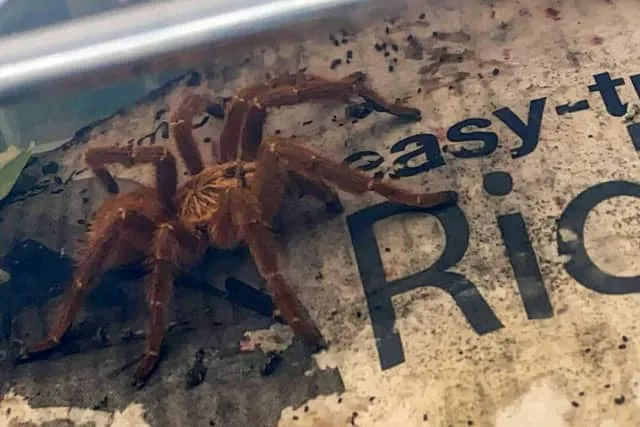What to Do if a Tarantula Pooped on You
Encountering a tarantula can be an exciting experience for any enthusiast, but what happens when your eight-legged friend decides to… well, relieve itself on you? It might sound like a bizarre situation, but it’s a reality for many tarantula owners. While tarantula poop isn’t dangerous, it can be a startling and slightly unpleasant experience. This guide provides a step-by-step approach to help you navigate this situation with calmness and confidence. From staying calm to preventing future incidents, you’ll learn the essential steps to take when a tarantula poops on you.
Stay Calm
The first and most important thing to do when a tarantula poops on you is to stay calm. A sudden, panicked reaction can potentially startle the tarantula, increasing the risk of defensive behaviors. Taking a deep breath and maintaining a level head is crucial for ensuring your safety and the tarantula’s well-being.
Why Staying Calm Is Important
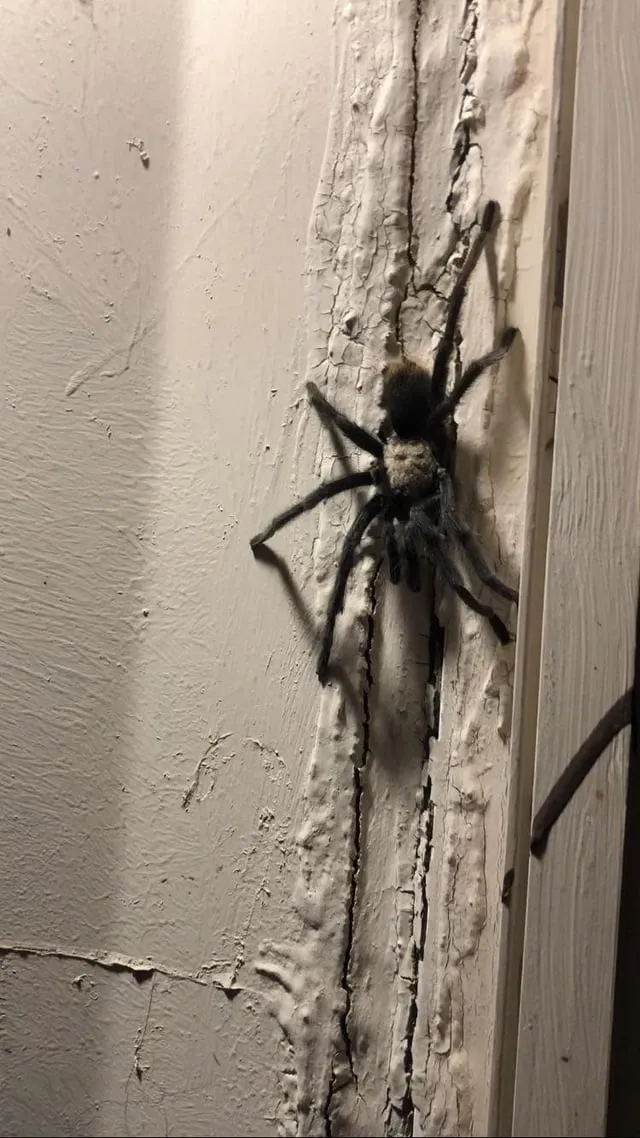
Panic can lead to abrupt movements that may be misinterpreted as threats by the tarantula. These spiders are generally not aggressive, but they may react defensively if they feel threatened. A calm approach minimizes the risk of a bite or other defensive behaviors, like flicking urticating hairs (in certain species). Remaining composed allows you to assess the situation logically and react appropriately.
How to Calm Down
If your initial reaction is one of surprise or alarm, take a few moments to regain your composure. Take slow, deep breaths, and remind yourself that tarantula poop isn’t harmful. Distance yourself from the tarantula briefly, if possible, to allow yourself to relax. Avoid any sudden movements or loud noises that might startle the spider. Visualizing a calm scene, or simply counting to ten can also help you regain control of your emotions.
Remove Yourself from the Situation
Once you’ve calmed down, the next step is to remove yourself from the immediate vicinity of the tarantula. This will allow you to assess the situation properly and safely clean the affected area. It is important to ensure that both you and the tarantula are safe.
Why Distance Matters
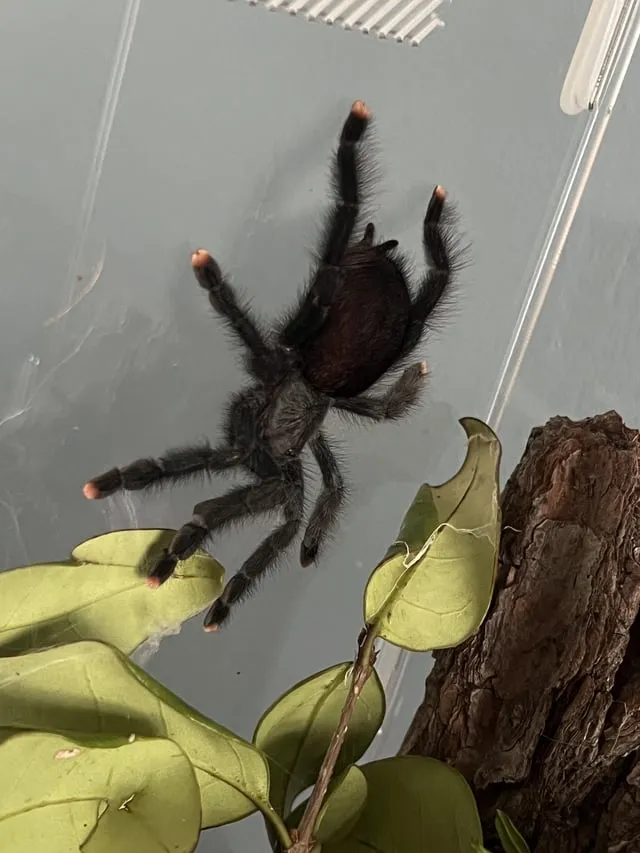
Creating distance reduces the chance of further contact with the tarantula or its waste. It also provides a safe space for you to gather your thoughts and plan your next steps. It will also prevent potential further soiling.
How to Move Away Safely
Slowly and deliberately move away from the tarantula. Avoid any sudden movements. If the tarantula is on your person, gently guide it to a safe surface if possible, like the floor or a table. If the tarantula is in its enclosure, step back and close the enclosure if it’s open. Ensure there are no obstacles in your path that could cause you to trip and startle the spider.
Clean the Affected Area
After you’ve put some distance between yourself and the tarantula, the next step is to clean the area where the poop landed. While tarantula poop is not toxic, it can be messy and may contain some uric acid (the white part in the poop), which can cause a mild irritation if left on the skin. Cleaning the area promptly is essential for maintaining hygiene and comfort.
What You’ll Need
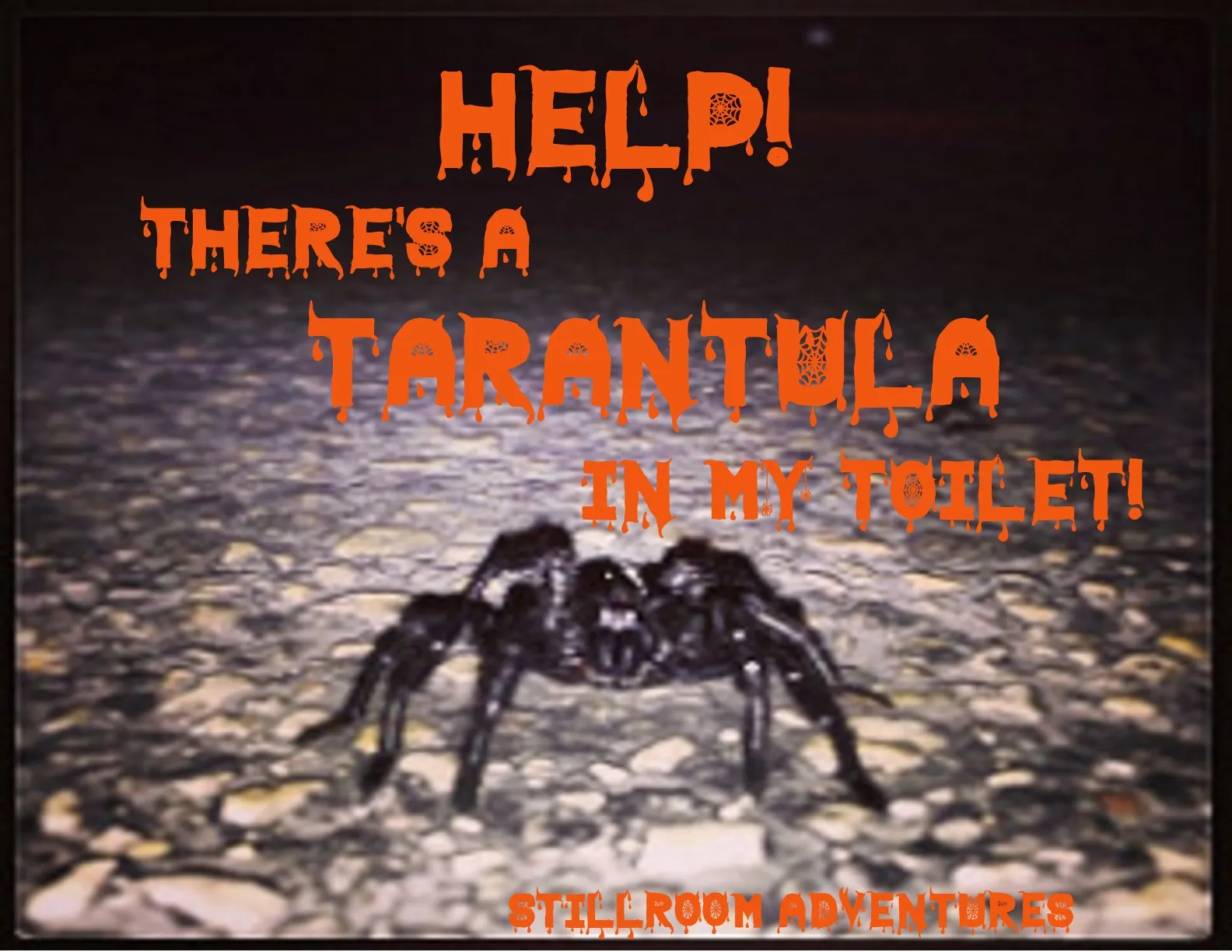
Gather the necessary supplies before you start cleaning. You’ll need a mild soap, warm water, a clean cloth or paper towels, and possibly some gloves. If the poop is on clothing, you may also want laundry detergent. Avoid using harsh chemicals or strong cleaning agents that could irritate your skin or harm the tarantula if it is near.
How to Clean the Area
Gently wash the affected area with mild soap and warm water. If the poop is on clothing, rinse the area under cold water. Wash the clothing with the detergent and let it dry. Pat the area dry with a clean cloth or paper towel. If the poop has gotten into your eyes, flush them with cool water for several minutes.
Monitor for Any Reactions
After cleaning the affected area, it’s important to monitor yourself for any unusual reactions. Although tarantula poop is not considered dangerous, some individuals may experience a mild skin irritation or allergic reaction. Paying attention to any changes in your body will help you determine if you need to seek medical attention.
What to Watch For
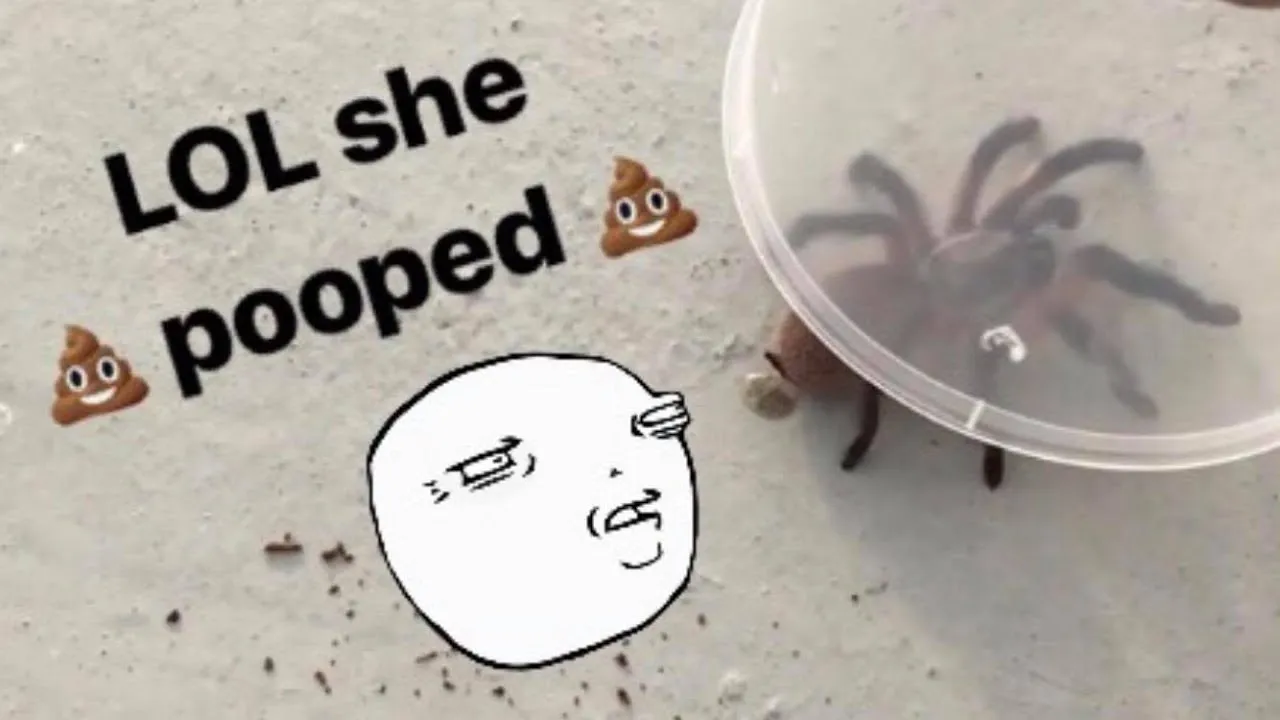
Keep an eye out for any signs of skin irritation, such as redness, itching, or swelling. Also, be aware of any respiratory issues, such as difficulty breathing, wheezing, or a tight feeling in the chest. Additionally, watch out for symptoms of a more severe allergic reaction, such as hives, swelling of the face, or difficulty swallowing.
When to Seek Medical Advice
If you experience any of the symptoms, or if they become severe, seek medical attention immediately. While reactions are rare, it is better to be safe than sorry. Inform your doctor about the situation, including what kind of tarantula you have. This information may help them treat you properly.
Prevent Future Incidents
While tarantula poop is not always preventable, there are steps you can take to minimize the chances of it happening again. Understanding tarantula behavior and practicing safe handling techniques can significantly reduce the likelihood of unexpected events. Here are a few tips for future situations.
Understanding Tarantula Behavior
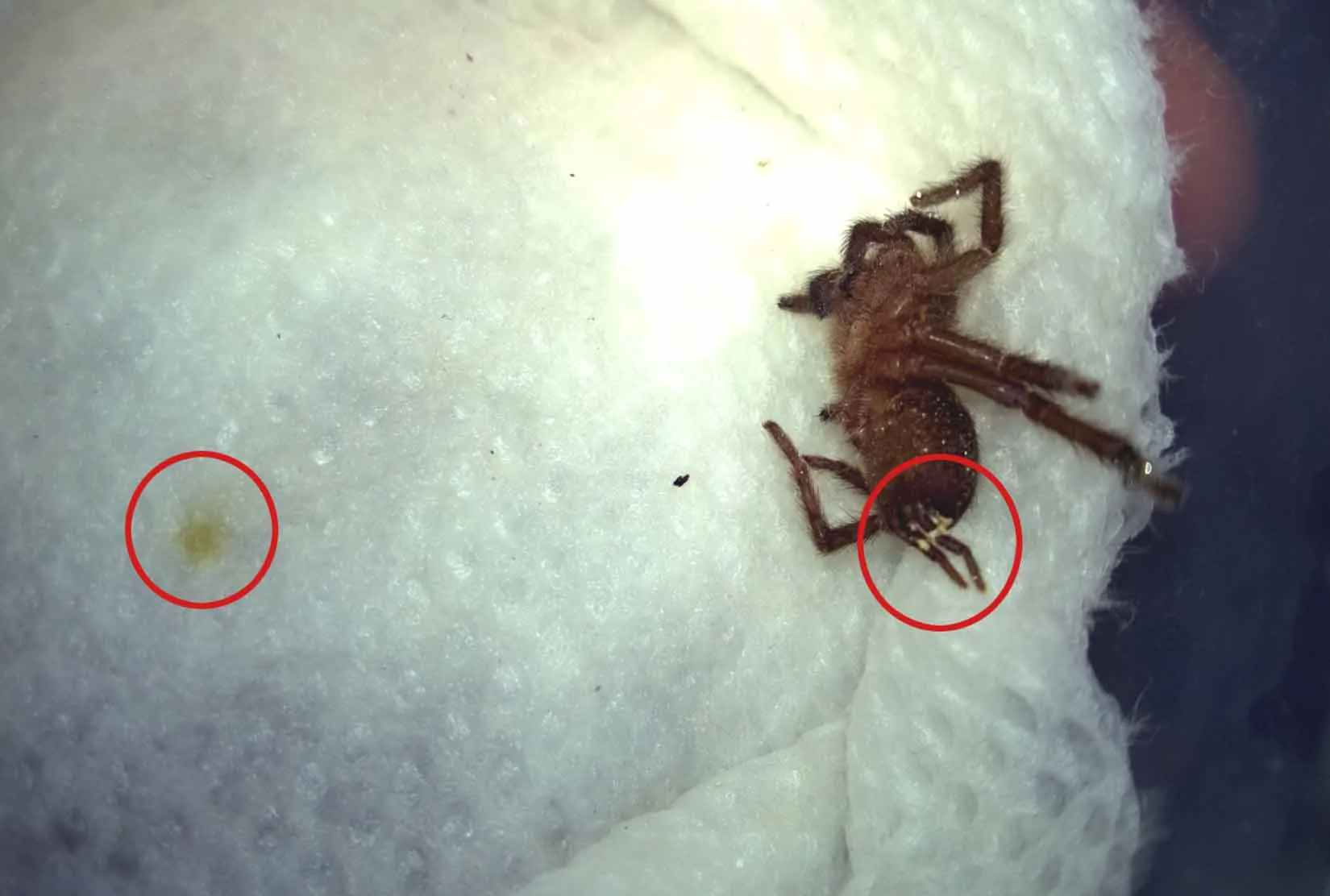
Tarantulas poop for a variety of reasons. The most common reason is simply because they need to. This is a natural biological process. You might notice that the tarantula often poops after eating. Factors such as stress can also contribute to this. Understanding your tarantula’s behavior can help you predict when it might poop. If you notice any change in your spider’s behavior, consult your veterinarian.
Tips for Safe Handling
When handling your tarantula, always be mindful of its size, species, and personality. Avoid any sudden movements that could startle the spider. Always handle the tarantula over a soft surface, such as a bed or a table, to minimize the risk of injury if it were to fall. Wash your hands before and after handling your tarantula. This ensures the spider and you are safe.
Dealing with a tarantula that pooped on you can be a humorous story. By staying calm, removing yourself from the situation, cleaning the area, and monitoring for any reactions, you can handle the incident with confidence. Remembering the tips for prevention can greatly reduce the odds of a repeat event. Enjoy your fascinating pet, and remember that even the most unexpected experiences can become memorable stories.
